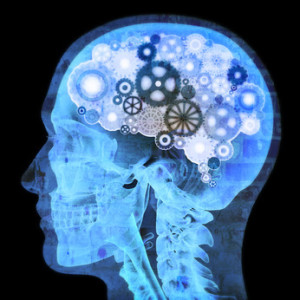Does motivation stem from a physical part of the brain? If yes, which part of the brain is responsible for the same?
-Swai Bandekar
A mysterious and lesser known part of the brain has been cited as the center where motivation arises from. This part is known as the Posterior Cingulate Cortex. The reason behind it being so mysterious is the fact that it is the part of the brain which consumes the most energy but has little to do with any specific and observable cognitive function. It was eventually singled out as the region which inherently facilitates mind-wandering.
On the other hand, the question which arises is, how can the brain region associated with mind wandering be directly linked to self-motivation? The answer to this can be found by understanding the structure as well as the function of the reward system in humans. This system is associated with structures such as the anterior cingulate cortex, prefrontal cortex, insular cortex, dorsal striatum, hippocampus, hypothalamus and the amygdalae. The PCC acts as a junction for all the nerve fibers from these regions to converge and branch out into the various parts of the brain as well as the body. Due to its close association with the reward system of the brain, which is essentially responsible for the release of feel-good hormones such as Serotonin and Dopamine whenever you accomplish something, the PCC also has an inherent role to play in the overall rewards that you reap after a particular task.
Tripped Out Fact: Damage to the PCC has been associated with diseases such as Schizophrenia and Autism. Maybe, mind wandering is much deeper than just daydreaming or “chewing the cud”.
During a study, it was found that the PCC becomes active especially after the completion of a particular task. This is in lieu with the reward system as well, where the feeling of accomplishment is achieved only after a particular task is completed. Then again, it was seen through studies that if the function of the PCC was hampered, the task that was given to a person may be completed, but the inherent motivation would be lacking owing to the absence of the reward that is achieved after completing the task. This points to the fact that our internal reward system is what motivates us to complete tasks in the external world. The PCC may in fact be helping this process by facilitating mind wandering so that our brain can make connections with previous tasks that may have triggered the reward system in order to ensure that the solution to new and novel tasks can be found. In other words, if we learn to channelize our wandering mind to wander towards positivity or aspects which may have triggered our reward system during past experiences, we can successfully approach tasks with a much more confident view, which in turn is the basis for all motivation.
Further Tripping…
Learn more about how motivation is an integral structural and functional part of the brain
 The Holy Connection An Alternative Exploration of Existence
The Holy Connection An Alternative Exploration of Existence




